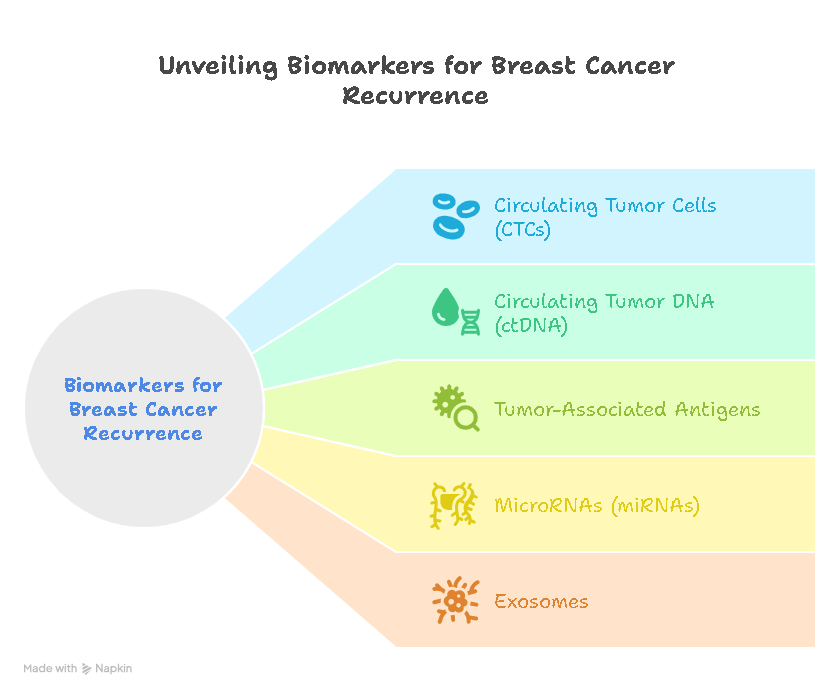Pregnancy is a delicate and critical period in a woman’s life, where her health directly impacts the well-being of her developing baby. Infections During Pregnancy Can Harm the Baby? Among various health concerns during pregnancy, infections are particularly significant due to their potential to harm both the mother and the baby. Understanding the types of infections, their effects, and preventive measures is crucial for expecting mothers and healthcare providers.

You have the power to create your own destiny
Types of Infections and Their Effects
- Viral Infections
- Rubella (German Measles): If a woman contracts rubella during pregnancy, especially in the first trimester, it can lead to congenital rubella syndrome. This syndrome can cause severe birth defects, including heart problems, hearing impairment, and developmental delays.
- Cytomegalovirus (CMV): CMV is a common virus that can be dangerous if transmitted to the fetus. It can cause hearing loss, vision problems, intellectual disabilities, and other developmental issues.
- Zika Virus: Infection with the Zika virus during pregnancy can result in microcephaly, a condition where the baby’s head and brain are underdeveloped, leading to severe cognitive and physical disabilities.
- Bacterial Infections
- Group B Streptococcus (GBS): GBS is a common bacterium found in the digestive and lower reproductive tracts of some women. If transmitted to the baby during childbirth, it can cause severe infections like pneumonia, meningitis, and sepsis.
- Listeriosis: Caused by the bacterium Listeria monocytogenes, listeriosis can lead to miscarriage, stillbirth, preterm labor, or severe neonatal infections. It is often contracted through contaminated food.
- Parasitic Infections
- Toxoplasmosis: This infection is caused by the parasite Toxoplasma gondii. If a pregnant woman contracts toxoplasmosis, it can cause severe congenital disabilities, including eye and brain damage. The parasite is commonly found in undercooked meat and cat feces.
How Infections Harm the Baby
Infections during pregnancy can harm the baby in various ways, depending on the type of infection and the stage of pregnancy. Here are some potential impacts:
- Miscarriage and Stillbirth: Some infections, like listeriosis, can cause miscarriage or stillbirth.
- Preterm Birth: Infections can trigger preterm labor, leading to the birth of a premature baby who may face numerous health challenges.
- Congenital Disabilities: Infections like rubella and Zika can cause structural abnormalities and developmental issues in the baby.
- Neonatal Infections: Babies exposed to infections during birth, like GBS, can develop severe illnesses shortly after birth.
Preventive Measures
Preventing infections during pregnancy is paramount to protecting the health of both the mother and the baby. Here are some essential preventive measures:
- Vaccinations: Ensure that vaccinations, such as the rubella vaccine, are up-to-date before pregnancy. Pregnant women should receive vaccines recommended by healthcare providers, like the flu shot and the Tdap vaccine.
- Good Hygiene Practices: Regular handwashing, especially after handling raw meat, using the restroom, or coming into contact with potentially contaminated surfaces, can reduce the risk of infections.
- Safe Food Practices: Avoiding unpasteurized dairy products, undercooked meats, and foods known to carry a high risk of contamination (like deli meats and certain seafood) can prevent foodborne infections.
- Regular Prenatal Care: Attending regular prenatal check-ups allows healthcare providers to monitor the health of the mother and baby and to detect and treat infections early.
- Avoiding High-Risk Areas: Pregnant women should avoid traveling to areas with known outbreaks of infections like Zika virus.
- Proper Animal Handling: Avoid handling cat litter, soil, or areas where animals defecate, as these can be sources of toxoplasmosis.
Conclusion
Infections during pregnancy can pose significant risks to the developing baby, potentially leading to miscarriage, preterm birth, congenital disabilities, and severe neonatal infections. However, with proper preventive measures, timely vaccinations, good hygiene practices, and regular prenatal care, many of these risks can be mitigated. Expecting mothers should work closely with their healthcare providers to ensure a healthy pregnancy and protect their babies from the potential dangers of infections.
Resources for Expecting Mothers
- Prenatal Care Clinics: Regular visits to prenatal care clinics provide essential monitoring and support. These clinics offer screenings, vaccinations, and education on maintaining a healthy pregnancy.
- Educational Materials: Books, pamphlets, and online resources from reputable sources like the CDC, WHO, and local health departments can provide valuable information on preventing and managing infections during pregnancy.
- Support Groups: Joining support groups, both online and in-person, can provide emotional support and practical advice from other expecting mothers and healthcare professionals. Sharing experiences and knowledge can be reassuring and empowering.
- Hotlines and Helplines: Many health organizations offer hotlines for expecting mothers to get immediate advice and support on pregnancy-related concerns, including infections.
- Mobile Apps: Pregnancy tracking apps can help monitor health, remind users of prenatal appointments, and provide tips on preventing infections. Many apps also have features for tracking symptoms and directly communicating with healthcare providers.
Empowering Expecting Mothers
Empowering expecting mothers with knowledge and resources is key to reducing the risks associated with infections during pregnancy. Here are some empowering steps:
- Stay Informed: Keep up-to-date with the latest research and guidelines on pregnancy health. Reliable sources of information include healthcare providers, government health agencies, and medical journals.
- Advocate for Yourself: Do not hesitate to ask questions or seek second opinions. Being proactive about your health and that of your baby is essential.
- Create a Birth Plan: A well-thought-out birth plan that includes preferences for handling potential infections can provide peace of mind and clarity during delivery.
- Practice Self-Care: Regularly engage in activities that promote physical and mental well-being. This includes balanced nutrition, exercise, relaxation techniques, and hobbies that reduce stress.
- Build a Support Network: Surround yourself with supportive friends, family, and healthcare providers. Having a strong support system can make a significant difference in managing the challenges of pregnancy.
- The Future of Pregnancy Care
- The future of pregnancy care looks promising with advancements in medical science and technology. Innovations in prenatal diagnostics, personalized medicine, and telehealth are paving the way for safer and more informed pregnancies. Here’s a glimpse into what the future holds:
- Personalized Medicine: Genetic testing and personalized treatment plans can identify and mitigate the risks of infections based on an individual’s genetic makeup and medical history.
- Telehealth: Telehealth services are making healthcare more accessible, allowing expecting mothers to receive medical advice and monitoring from the comfort of their homes.
- Artificial Intelligence: AI and machine learning can predict potential complications by analyzing large datasets, helping healthcare providers make informed decisions about pregnancy care.
- Enhanced Vaccines: Ongoing research into developing safer and more effective vaccines for infections that affect pregnancy is critical. These advancements will offer better protection for mothers and babies.
- Global Health Initiatives: Increased focus on global health initiatives aims to improve prenatal care worldwide, ensuring that all expecting mothers, regardless of location, have access to essential healthcare services.
- Infections during pregnancy are a significant concern, but with the right knowledge, preventive measures, and medical care, the risks can be significantly reduced. Expecting mothers, healthcare providers, and support networks all play vital roles in ensuring a healthy pregnancy. By staying informed, advocating for oneself, and utilizing available resources, mothers can create a safe and nurturing environment for their developing babies. The future of pregnancy care is bright, with ongoing research and innovations promising even better outcomes for mothers and their children. Together, we can work towards healthier pregnancies and healthier futures.
- While the focus is often on maintaining health during pregnancy, it is equally important to prepare for the postpartum period. After the baby is born, the mother’s body undergoes significant changes, and the risk of infections, though different, still exists. Here are some steps to ensure a healthy postpartum period:
- Postnatal Check-Ups: Regular postnatal visits to the healthcare provider are crucial to monitor the mother’s recovery and the baby’s development. These check-ups help identify and address any postpartum complications early.
- Hygiene and Wound Care: Proper hygiene is essential, especially if the mother had a cesarean section or an episiotomy. Keeping the incision site clean and following the healthcare provider’s instructions can prevent infections.
- Breastfeeding Support: Breastfeeding has numerous health benefits for both the mother and the baby, but it can sometimes lead to infections like mastitis. Seeking support from lactation consultants and promptly addressing any signs of infection can help.
- Rest and Nutrition: Adequate rest and a balanced diet are vital for recovery. Nutritious meals can boost the immune system and help the body heal. Family and friends can assist with household chores and meal preparation to allow the new mother to rest.
- Mental Health: Postpartum depression and anxiety are common, and addressing mental health is as important as physical health. New mothers should seek support from healthcare providers, counselors, or support groups if they experience symptoms of depression or anxiety.
- Maintaining health during and after pregnancy can have long-term benefits for both the mother and the baby. Here are some long-term health considerations:
- Chronic Disease Prevention: A healthy pregnancy and postpartum period can reduce
- options with a healthcare provider can help space out pregnancies and allow the mother’s body to recover fully before the next pregnancy. This is important for both maternal and child health.
- Healthy Habits: Establishing healthy habits during pregnancy and maintaining them postpartum can benefit the entire family. This includes regular exercise, a balanced diet, and avoiding harmful substances like tobacco and excessive alcohol.
- Monitoring Baby’s Health: Regular pediatric check-ups ensure that the baby’s development is on track and can help identify and address any health issues early. Vaccinations and routine screenings are important components of a healthy start for the baby.
- Education and Support: Continuing to educate oneself about health and wellness can empower mothers to make informed decisions about their and their family’s health. Support groups and parenting classes can provide valuable information and a sense of community.
“You are capable of amazing things.
“Dear Readers,
We, the authors, are seasoned medical practitioners with over 25 years of collective experience. The care tips and suggestions provided in this content are intended to offer general advice for promoting health. However, it is crucial to understand that every individual is unique, and what works for one person may not be suitable for another.
While our recommendations focus on natural and general care practices, we strongly advise you to consult with your family doctor or a qualified healthcare professional before incorporating any specific medications, chemicals, or advanced treatments into your care routine. Your family doctor can provide personalized advice based on your medical history, type, and potential sensitivities.
Our goal is to empower you with knowledge for healthier you, but individualized medical guidance is paramount for ensuring safe and effective care practices. Always prioritize your health and seek professional advice for any concerns.
Best regards,
dr. MAAS
director digital healthcare
COSMOCARE
preventadisease@gmail.com
powerofprevention@outlook.com












Leave a Reply